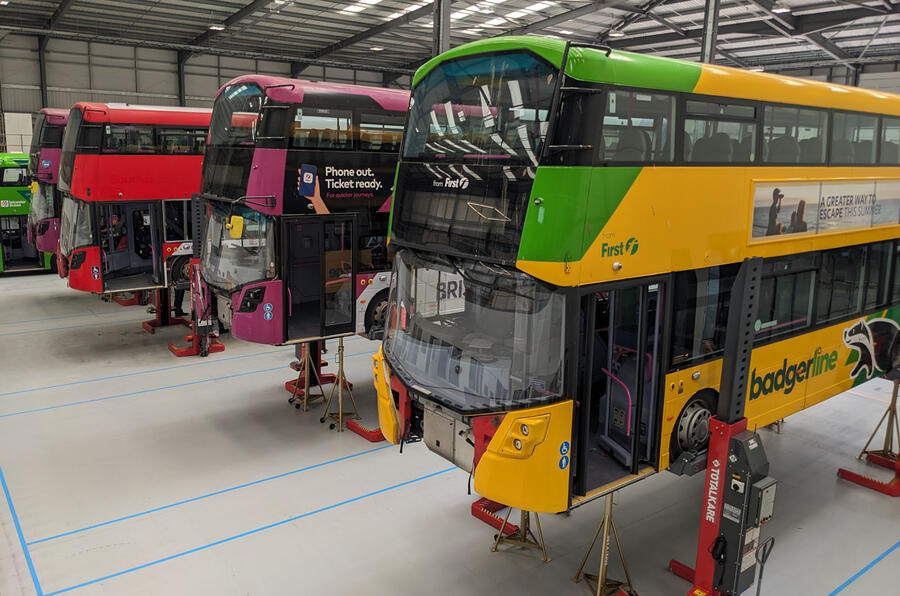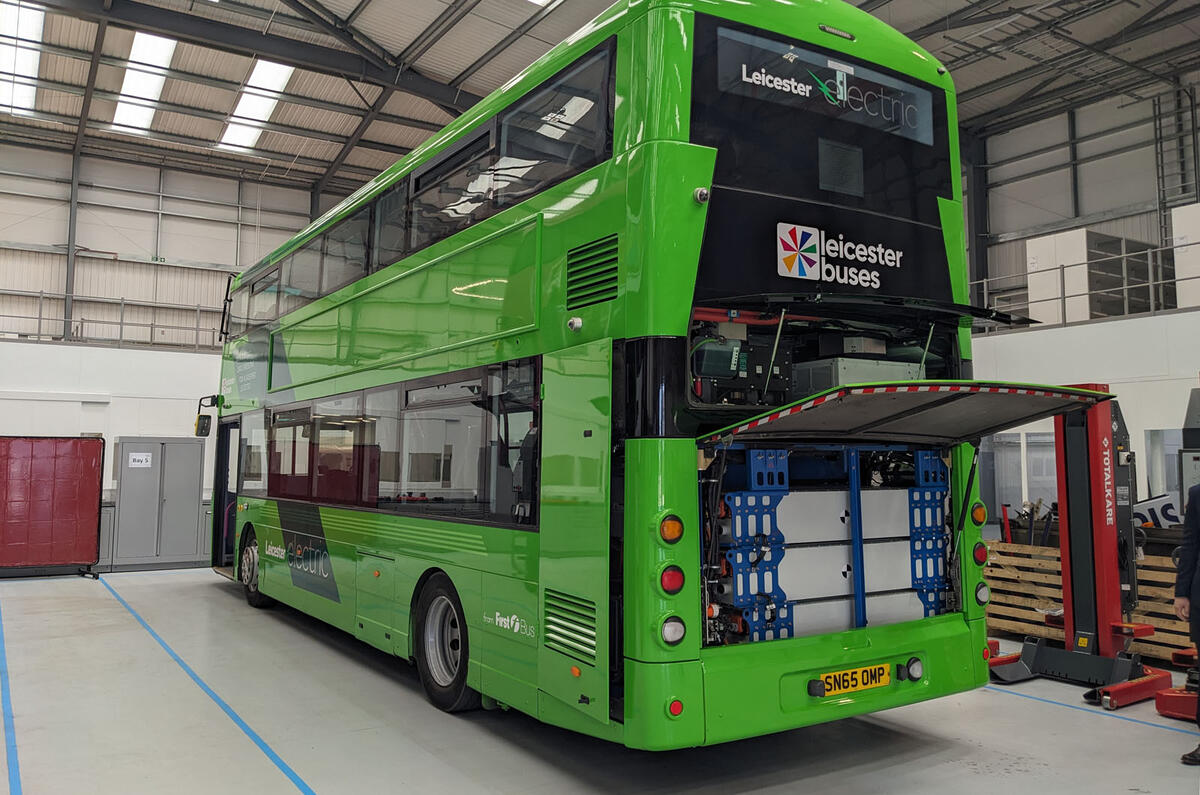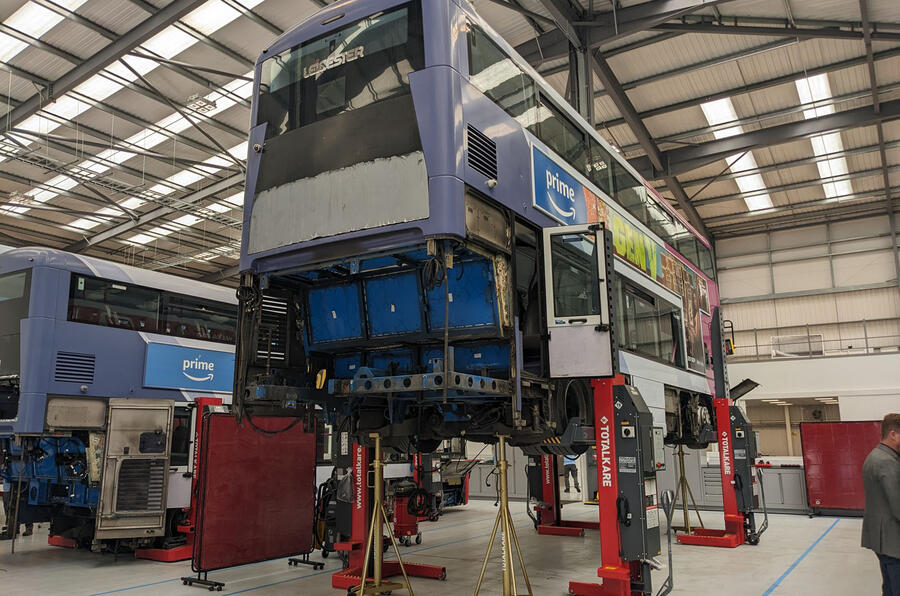Retrofitting diesel buses with electric powertrains is the next big business in automotive, Wrightbus CEO and ex-Lotus boss Jean-Marc Gales has told Autocar.
He estimates that 34,000 diesel buses will need to be converted or replaced by 2035, creating “a huge business opportunity”.
Northern Irish firm Wrightbus – owned by Jo Bamford, son of JCB boss Anthony – has launched a new sub-brand called Newpower to cater to this predicted demand with a programme that will retrofit diesel bus fleets at their mid-life point.
The company, which built London’s New Routemaster hybrid double-deckers, has opened a new 45,000sq ft facility in Bicester, which it says can convert up to 10 buses every week.
Each bus costs on average £200,000 to convert whereas a new fully electric bus, such as the recently revealed BYD BD11, costs 500,000, the firm says, having taken bookings through to the end of 2025.

“We can take buses that are five to nine years old and decarbonise them in just three weeks, giving them an extra 10 years of life,” Gales said. “This is nothing short of a revolution.”
He added: “We wish there was some funding from the government. That would be ideal. But for now, this is the best and most cost-effective way for our customers [to lower emissions].
“We want to convert them all.”
The firm is currently in talks with Transport for London to convert its Routemaster buses, a potentially cheaper route for TfL to hit its 2030 EV bus fleet promise.
If Wrightbus is successful, this contract would begin next summer, truly setting the firm on a “pathway to growth”, according to Gales.










Join the debate
Add your comment
The curse of Brexit strikes again!
Not just Buses, converting all commercial vehicles would take a serious chunk of pollution off the roads everywhere,yes, some Government backing would be nice,but, as we all know they've got there hands busy just now,and this a British effort,build here in the UK.